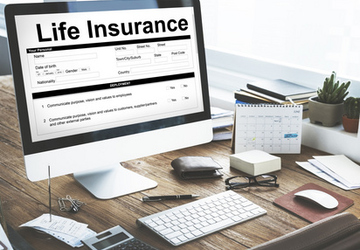5 Key Strategies for a $250,000+ Payout in Critical Illness Insurance
Dealing with a serious illness is hard enough without worrying about finances. However, the harsh reality is that serious illness is often accompanied by high medical expenses and loss of income due to the inability to work.
This financial pressure could hamper recovery. Adequate critical illness insurance can provide an important financial safety net.
With the right coverage and planning, policyholders can receive more than $250,000 in benefits, covering everything from medical bills to daily expenses.
In this blog post, we explore five key strategies to ensure you get critical illness insurance payout when you need it most. Let's start!
How does critical illness insurance work for you?

Critical illness insurance provides cash benefits if the policyholder is diagnosed with a critical illness listed in the policy. These conditions often include heart disease, stroke, cancer, paralysis, severe organ failure and coma.
Unlike disability insurance, benefits do not cover lost wages but rather cover all needs during treatment and recovery. Policies vary in terms of coverage, benefit amounts, and limitations. So check them carefully.
In difficult times, critical illness insurance can fill the financial gap created by occupational disability, health and life insurance.
5 Steps to Get $250,000 in Critical Illness Benefit
The best insurance against critical illness is useless if the benefits are minimal. These five strategies can significantly increase your payout potential.
Let’s read these strategies in detail.
1. Buy early to lower premiums
Serious illnesses tend to occur more frequently as we age. Therefore, if you purchase critical illness insurance at a young age, your monthly premiums will be much lower. Starting early also gives you time to increase your coverage.
Benefits can be accumulated by making contributions to the policy over several years. If you buy it in your 20s, you could get a $250,000 payout if you become seriously ill. This financial cushion is sure to bring peace of mind!
Buy comprehensive critical illness cover now rather than waiting, and you'll pay less over time and provide better long-term protection. No one wants to think about something bad happening. However, it makes sense to establish coverage as early as possible.
2. Choose high-value, long-term benefits
When choosing critical illness insurance, determine the benefit limit and term length. Determine the maximum amount of benefits you can reasonably afford.
Also, choose the maximum term that fits your budget. This allows multiple claims to be filed if a new disease emerges. Then, over 10 or 20 years, multiple approved claims could pay you a total of more than $250,000.
Of course, we hope we never need this cover. However, choosing the highest amount and longest term when initially purchasing your policy can provide you with significant support when a health crisis actually occurs.
If serious illness strikes your life more than once, choosing a higher benefit cap and a longer term will give you a higher chance of being paid out overall.
3. Add optional drivers
Critical illness policies allow you to add additional coverage called "riders" for an additional fee.
Useful additional benefits to consider include reducing the wait time for benefits to take effect, covering less serious illnesses, or protecting more family members. Over time, even a well-chosen driver can net you thousands in additional payments.
Imagine if you reduced the waiting time before withdrawal from 90 days to 30 days. This can make a big difference in getting support when you need it during treatment.
That way, whether you're dealing with a major or minor health crisis, you'll have access to resources. A smart driver will tailor coverage to your needs and ensure maximum payout.
4. Avoid limitations that may cause claims to be excluded

Seemingly minor exclusions and limitations in a critical illness policy may offset the expected payout. Carefully review the definition of coverage conditions and the documentation required to file a claim.
Also, confirm that pre-existing health conditions and high-risk hobbies do not invalidate the claim. Reporting everything upfront can prevent gaps in coverage from being discovered until it’s too late.
5. Submit claims quickly and carefully
Dealing with an insurance claim when you're not feeling well can be stressful. Make things easier by maintaining complete medical records and letting your doctor tie health details directly to your policy wording.
File documents as soon as you are diagnosed rather than letting treatment or grief get in the way. Missing the deadline can result in claim denial and delayed payment when you need it most.
Also remember that guidelines limit the frequency of damage. So when does the waiting time between calendar submissions expire. Reapply now to get more money faster.
Better yet, designate a trusted friend to handle administrative paperwork, communication with doctors, proper claim submission, and repeat follow-up.
Taking that burden away so you can focus on healing is huge. By carefully documenting and following up on paperwork without compromise, your support system can help maximize the speed of payments.
The true value of critical illness insurance
While stable payouts are crucial, critical illness insurance can also provide financial stability when health declines and bills pile up, relieving stress.
This empowerment contributes to overall recovery. Ultimately, maximizing this coverage makes sense not only for payment potential, but also for a sense of security and control when you need it most.
Focusing on these key strategies can help critical illness policyholders secure six-figure benefits to address the numerous expenses that often come with such a devastating diagnosis.
Just as important, this coverage can provide you with peace of mind when your health and financial situation may spiral out of control.
Because of this valuable trust and sense of security in difficult times, it pays to optimize the payout potential of critical illness insurance.









